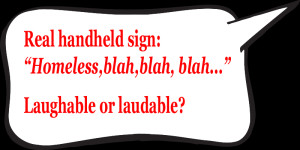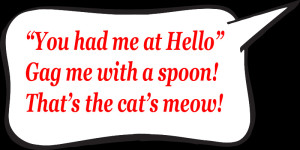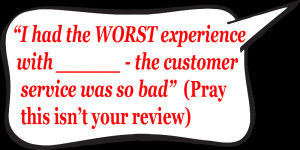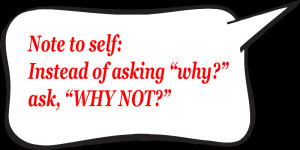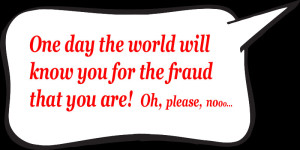![]()
 Here’s something we all know but don’t think to apply to communication: feed it and it will grow. We feed kids and we feed pets and we feed plants and they all grow up big and strong and healthy (sometimes too big…) But feed communication?? How does that work?
Here’s something we all know but don’t think to apply to communication: feed it and it will grow. We feed kids and we feed pets and we feed plants and they all grow up big and strong and healthy (sometimes too big…) But feed communication?? How does that work?
It happens every day. Someone feels a slight (perhaps an unintentional oversight), takes offense, the anger is fed and grows as it is looped repeatedly in the offendee’s head. (Why would she leave me out of things? She must really hate me. She’s done this before and now it’s happening again! I don’t have to take this kind of treatment!! Enough – this stops today!!!) Then the decision is made to address the offender, with less than calm communication – how is it possible to be calm at this point? (We need to TALK. I can’t believe you – again!) This confrontation serves to fan the flames as the offender gets defensive and responds accordingly. (Excuse me – where do you get off yelling at me? You’re way out of line!) And as the anger is fed, so it will grow, with both sides escalating the ensuing argument higher and higher.
Besides anger, it works on other emotions too. Smile and feed the happiness; spread the cheer and others will catch the joy, brightening their day. Misery also is contagious – someone starts the negative ball rolling, then others join in the downward spiral (You think you have it bad… let me tell you what happened to ME.) Feed anything and it will grow.
And indulging in too much of anything will make you sick.
It’s not healthy or good to feed anything too much, which can grow to outsized proportions and be nearly impossible to rein in. Outsized emotions can turn into permanent behavior traits. The person with a short fuse, the perpetual sad one, the too happy all the time gal – yeah, you know who I mean. All things need moderation.
So once you recognize that this is a habit and you see it coming, shut it down if you don’t want to play. Nope, not going to feed into this argumentative loop with you. The best way to not let that person push your buttons is to tone the emotions way down and be very objective in your outward communication instead of joining in the fray and letting your own emotions run amuck. (It appears that you are angry about this, so maybe we should walk away and let you cool down. What? Still going? OK, well I’m going to change the subject since I can’t talk to you when you’re like this.) Very cool and collected and not taking the anger bait. Don’t feed it and it can’t grow.
Not always that easy to do, but recognizing that this is a communication pattern is the first step. And it takes two to tango. Let the person dance alone and the negative emotion should dwindle. A highly charged emotion left unresponsive loses most of its charge after 90 seconds. But it takes the full minute and a half and can’t be rushed away. So let it have its time due, and then some, before re-approaching the person. Time really is a good salve.

